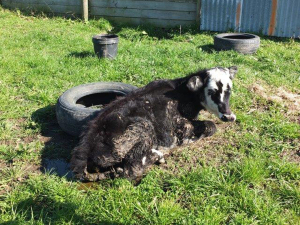NZ Catchment Groups Thrive with ‘Source to Sea’ Approach
The most successful catchment groups in NZ are those that have 'a source to sea' approach.
 A Waikato cattle farming family have been fined $23,000 for failing to provide sufficient food and care for their animals.
A Waikato cattle farming family have been fined $23,000 for failing to provide sufficient food and care for their animals.
A Waikato cattle farming family have been fined $23,000 for failing to provide sufficient food and care for their animals, resulting in more than half a dozen animal deaths.
Shane Ross Quigley (49), Colin Ross Quigley (75) and Margaret Heather Quigley (72) were sentenced in March on four charges under the Animal Welfare Act in the Morrinsville District Court, following a successful prosecution by the Ministry for Primary Industries (MPI).
Between July and August 2022, animal welfare inspectors and a veterinarian inspected the cattle at the Quigley’s 26-hectare Matamata farm, resulting in charges being laid.
“We found the Quigleys were raising about 158 mixed breed and 21 Limousin cattle, which was above the appropriate stocking rate for the feed available at their farm,” says MPI acting regional manager, animal welfare and NAIT compliance, Bianca Upton.
Upton says most farmers do the right thing for their animals, but the Quigleys were not living up to their welfare obligations and more of these animals were at a high risk of dying from starvation.
During the first visit by MPI, 39 cattle were visually assessed as being emaciated and the Quigleys were issued a legal notice of direction to immediately address these animal welfare issues. A further inspection found a young bull, a Limousin cow and a young heifer were in serious need of veterinary care because of conditions such as worms and emaciation. All three animals were euthanised due to their poor health.
“These animal deaths were preventable if the Quigleys had been meeting their animal welfare responsibilities,” says Upton.
Donald Trump's latest tariff tantrum has again thrown the world of trade into a new round of turmoil and uncertainty, and NZ is caught up in it.
The third edition of the NZ Dairy Expo, held in mid-February in Matamata, has shown that the KISS principle (keep it simple stupid) was getting a positive response from exhibitors and visitors alike.
Twenty years ago, South African dairy farm manager Louis Vandenberg was sent to a farm in Waikato to provide training on Afimilk technology.
Strong farmgate milk price is helping boost investment on farms, says PGG Wrightson chief executive Stephen Guerin.
Fonterra's 460 milk suppliers in Australia, who will switch to Lactalis end of this month, are unfazed with the impending change.
The 5+ A Day Charitable Trust has launched a collection of affordable recipes designed to turn everyday vegetables into seasonal stars.

OPINION: A mate of yours truly reckons rural Manawatu families are the latest to suffer under what he calls the…
OPINION: If old Winston Peters thinks building trade relations with new nations, such as India, isn't a necessary investment in…